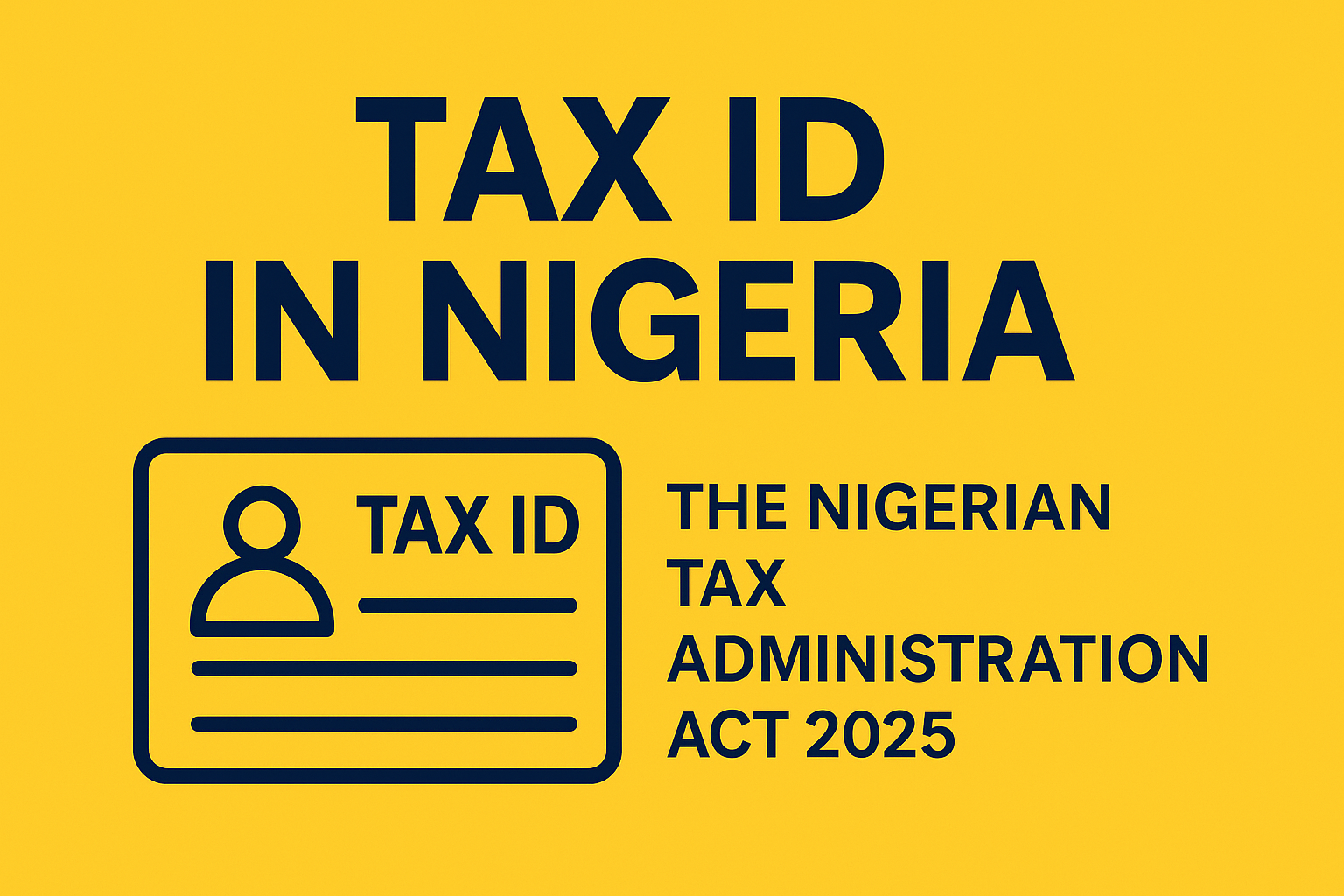Let’s face it: Dealing with taxes isn’t the reason you started your business. But whether you’re selling Ankara fabrics on Instagram, running a logistics company in Lekki, or consulting from your home in Kaduna, understanding your tax obligations as well as your Tax ids is no longer optional — it’s law. And right at the Center of this law is one thing:
Your Taxpayer Identification Number (Tax ID).:
With the introduction of the Tax Administration Act, 2025, the Federal Inland Revenue Service (FIRS) and State tax authorities are saying one thing loud and clear:
“No Tax ID, No Business As Usual.”
In this blog post, we’ll break down the Tax ID provisions of the Act into practical, bite-sized pieces so that you (yes, you!) can stay compliant, avoid penalties, and maybe even laugh along the way.
What Is a Taxpayer Identification Number?
Think of it like your business’ national ID card — it tells the tax authorities who you are, what you do, and where to find you when it’s time to pay your dues.
It is required for:
- Paying taxes (VAT, CIT, PAYE, etc.)
- Opening corporate bank accounts
- Bidding for government contracts
- Filing your annual returns
No Tax ID? You’re invisible to the taxman — but not in a good way.
Who Needs to Register for a Tax ID?
Under Part II of the Tax Administration Act, 2025, the list of who needs to register just got longer. Here’s a breakdown:
1. Every taxable person
This includes:
- Sole proprietors
- Entrepreneurs
- Freelancers
- Companies
- NGOs
- Once you apply, the tax authority must register you and issue a Tax IDs.
- If they refuse, they must give you a reason within 5 working days.
- Even if you don’t apply, they can still register you based on the data they already have (so… there’s no hiding anymore)
- You can’t hold more than one Tax ID.
- If you somehow get two, report it immediately so it can be unified.
- A Tax ID is not transferable — not even to your cousin when you “dash” him the business.
When Should I Use My Tax ID?
Section 8 outlines where Tax IDs must show up:
- On tax returns
- On invoices
- On contracts with government agencies
- In dealings with banks and insurance companies
So, if you’re applying for a loan or bidding for a government contract and don’t include your Tax IDs, expect a polite “No, thanks.”
What Happens When You Change Business Details?
Moving to a new shop? Changing your phone number? Rebranding from “Ngozi Fashion House” to “Zizi Couture Empire Ltd”?
Under Section 9, you must notify the tax authority within 30 days. This includes:
- Business name changes
- Ownership transfers
- Mergers or acquisitions
- Even if you change your email!
- Why? Because the tax authority needs to know who to hold responsible if things go sideways.
What If I Temporarily or Permanently Close My Business?
The law is quite practical here:
If you pause your business:
- Notify FIRS within 30 days
- Your Tax ID goes into dormant mode
- If you shut down permanently:
- Notify FIRS again
They’ll cancel your Tax ID after verifying
You’re not just ghosting the tax authority — you’re closing the loop properly.
Note: If you pass away (God forbid), or your business is liquidated, FIRS will cancel the Tax IDs as part of winding-up procedures.
A Bit of Humor
Imagine you’re a tailor in Ibadan. You’ve sewn agbadas for half of Oyo State. A government parastatal sees your designs on Instagram and wants to give you a ₦3 million contract.
They ask for your Tax ID.
You smile and say, “Tax ID? I’m not a registered business o.”
That’s the sound of your contract slipping away.
Pro Tip for Small Business Owners
Don’t wait until FIRS shows up at your shop or emails you a ₦500,000 penalty.
Instead:
- Register with CAC (if you haven’t already)
- Go to your relevant tax office (FIRS for federal, State IRS for state taxes)
- Request your Tax ID (often comes with your TIN)
- Keep it safe and use it in all business transactions
Many states now allow online registration. For FIRS, visit Here
- TikTok creator
- Voiceover artist
- Online tutor

